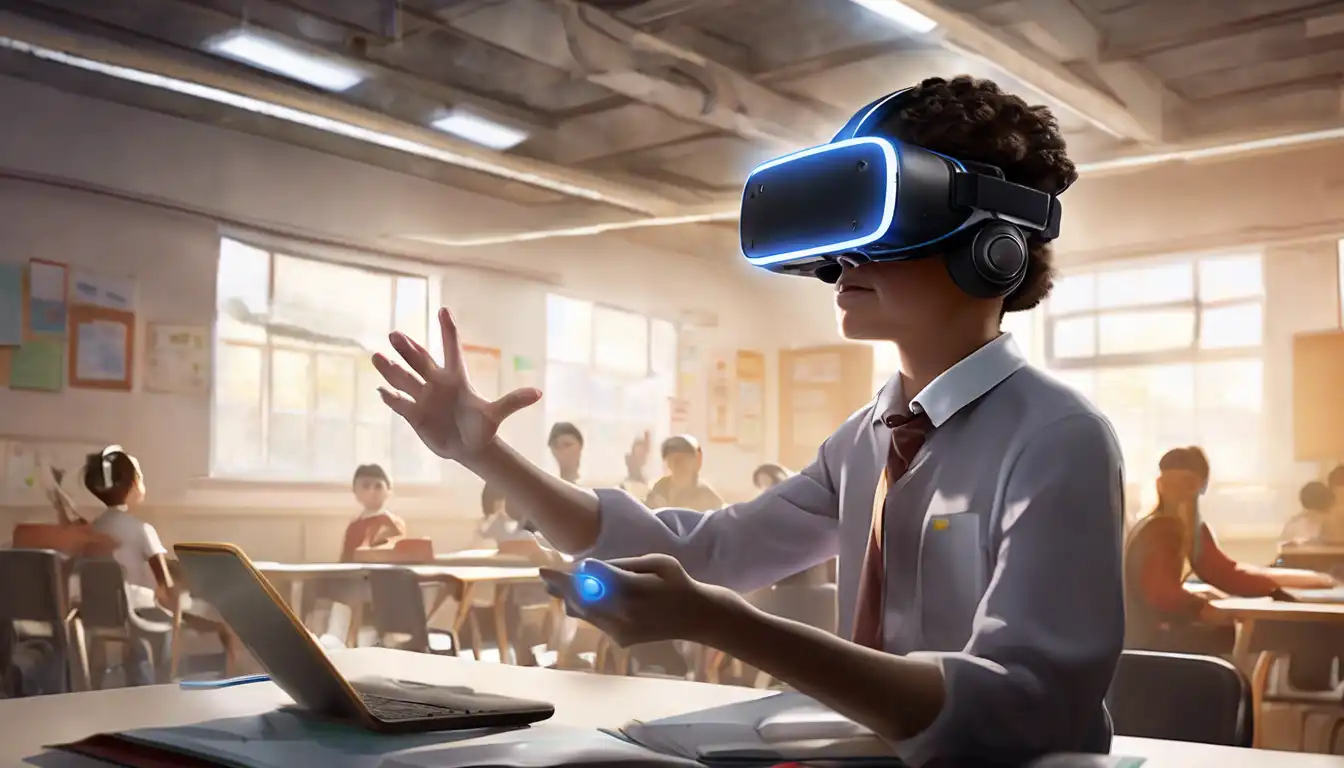The Transformative Power of Virtual Reality in Learning
Virtual Reality (VR) technology has rapidly evolved from a futuristic concept into a practical tool in various sectors, notably in education and training. By creating immersive, interactive environments, VR offers unparalleled opportunities for experiential learning and skill development. This article delves into the potential of VR to revolutionize how we learn and train, making education more engaging, accessible, and effective.
Why VR is a Game-Changer in Education
VR's ability to simulate real-world scenarios makes it an invaluable educational tool. Students can explore historical sites, dissect virtual frogs, or even travel through the human bloodstream, all from the safety of their classroom. This immersive experience enhances understanding and retention, catering to various learning styles. Moreover, VR can bridge geographical gaps, allowing students from remote areas to access quality education and resources.
VR in Professional Training and Skill Development
Beyond traditional education, VR is transforming professional training across industries. From healthcare to aviation, trainees can practice complex procedures and hone their skills in risk-free, controlled environments. For instance, surgeons can perform virtual operations, and pilots can navigate flight simulations, significantly reducing the learning curve and improving safety.
Challenges and Considerations
Despite its potential, VR in education and training faces challenges, including high costs, technological limitations, and the need for specialized content. However, as technology advances and becomes more affordable, these barriers are gradually diminishing, paving the way for wider adoption.
The Future of VR in Education and Training
The future of VR in education and training is bright, with ongoing advancements promising even more immersive and interactive learning experiences. As educators and trainers continue to explore VR's possibilities, we can expect a shift towards more personalized, engaging, and effective learning methodologies.
For more insights into how technology is shaping education, check out our article on The Impact of AI on Modern Education.
Conclusion
Virtual Reality holds the potential to transform education and training by making learning more immersive, interactive, and accessible. While challenges remain, the benefits of VR in enhancing understanding, retention, and skill development are undeniable. As we move forward, embracing VR technology will be key to unlocking new dimensions in education and professional training.
